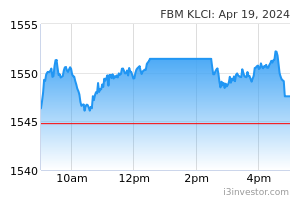SIRIM Eco-Labelling Scheme - A sustainable environment through sustainable procurement

Go green! Save Mother Earth! These are some of the phrases we have heard over the years as Malaysians become more environmentally conscious and, as a result, buy more eco-friendly products.
The transition to a green circular economy is taken seriously by both the people and the government. Malaysia needs an economy that is able to grow and benefit its people without increasing the negative impact on the environment and putting pressure on natural resources. The Sustainable Consumption and Production (SCP) blueprint is emphasised in the 11th Malaysia Plan (11MP) as one of the focus areas that will help the country achieve green growth and transition towards a more inclusive development trajectory.
The SCP blueprint is implemented through the Government Green Procurement (GGP) project. The 2½-year project focuses on the role of the government as a key catalyst in creating a green market for products and services.
GGP refers to the acquisition of products, services and work in the public sector that takes into account environmental criteria and standards for protecting the environment and natural resources and minimising or mitigating the negative effects of human activities. The 11MP has stated the target for 20% of selected groups of products and services in government procurement to be green procurement by 2020.
The government's long-term action plan is to have 100% procurement of selected product groups by 2030. With the federal, state and local governments involved in GGP, there will be an increase in demand for green products and services and this will spur industries to meet green requirements.
Notably, the SCP blueprint is also in line with the United Nations' Sustainable Development Goal 12 (UN SDG 12): Ensure sustainable consumption and production patterns.
Launched in 2013, the GGP initiative in Malaysia started with five ministries involved in a pilot programme. From only six product categories initially, 40 product and service categories have now been identified and selected in the implementation of GGP.
Manufacturers and providers of other green products and services that are not on the list are encouraged to participate as long as they meet the green criteria.
A product or service that meets local and international environmental standards will be given the MyHIJAU mark. MyHIJAU is Malaysia's official green recognition scheme endorsed by the Ministry of Environment and Water.
Another commitment from the government is the Green Technology Master Plan, which aims to facilitate the National Transformation (Transformasi Nasional 2050 or TN50), an initiative to position Malaysia among the top countries in the world in economic development, citizen well-being and innovation by 2050.
SIRIM's Eco-Labelling Scheme
( 24,36 % )
( 39,38 % )
( 36,26 % )



